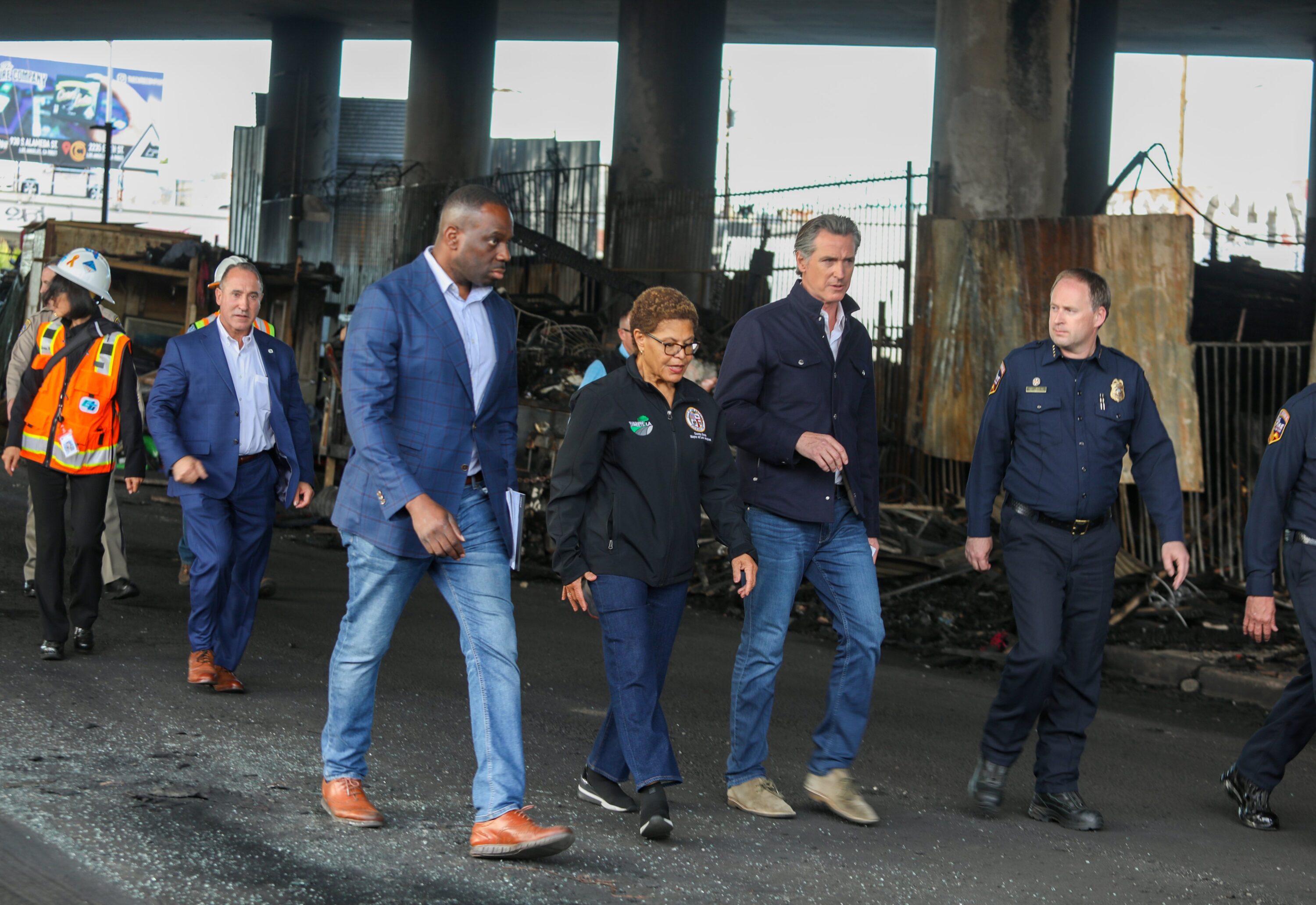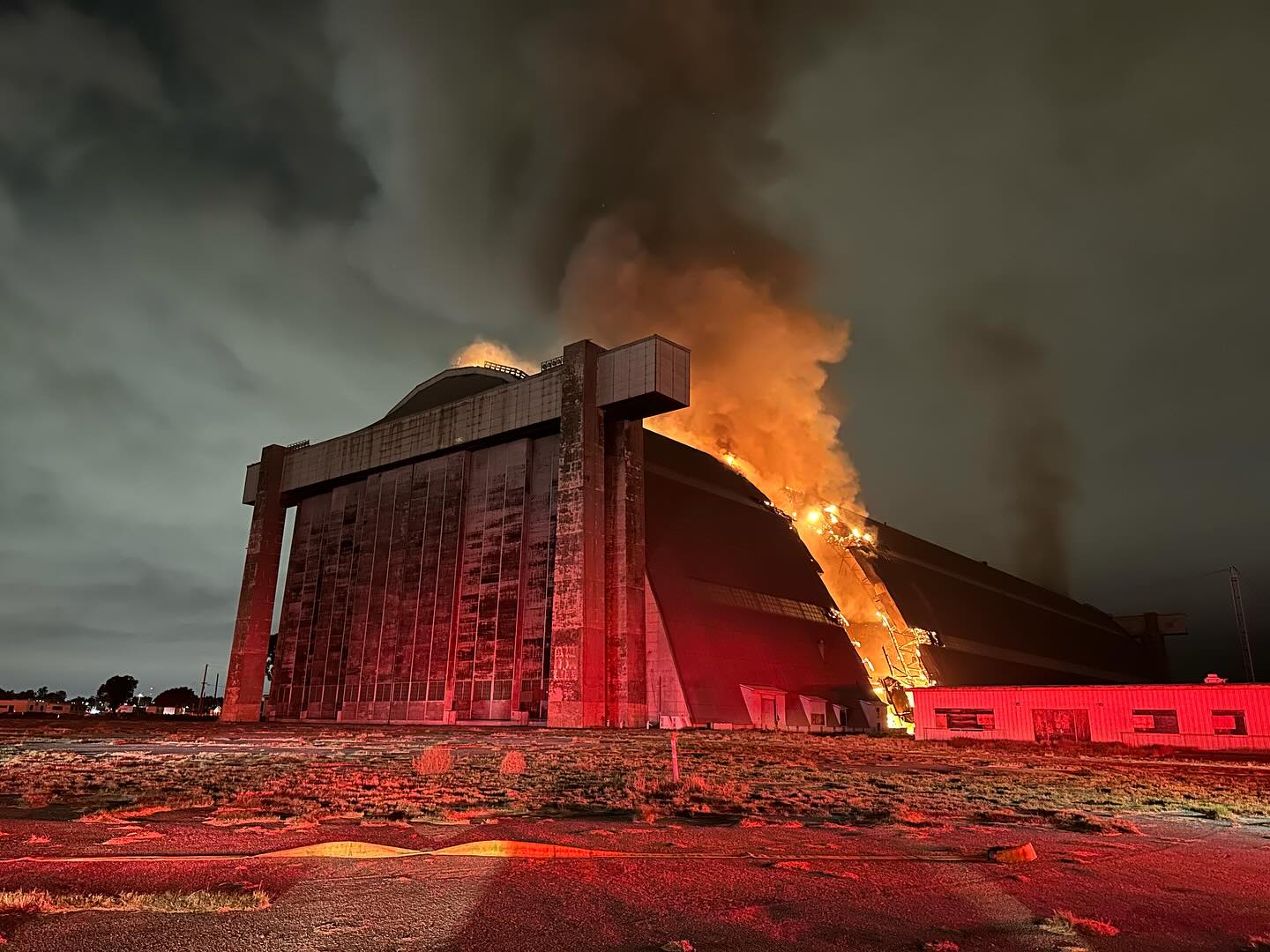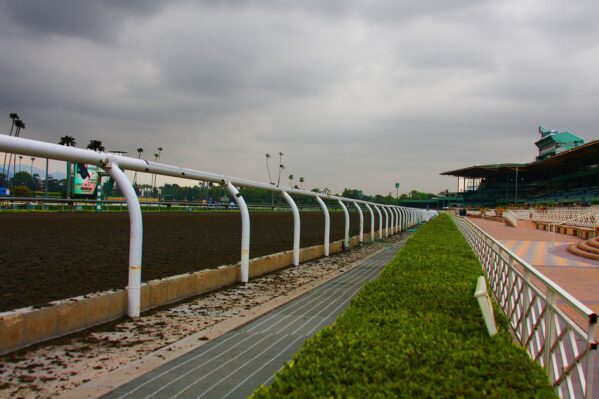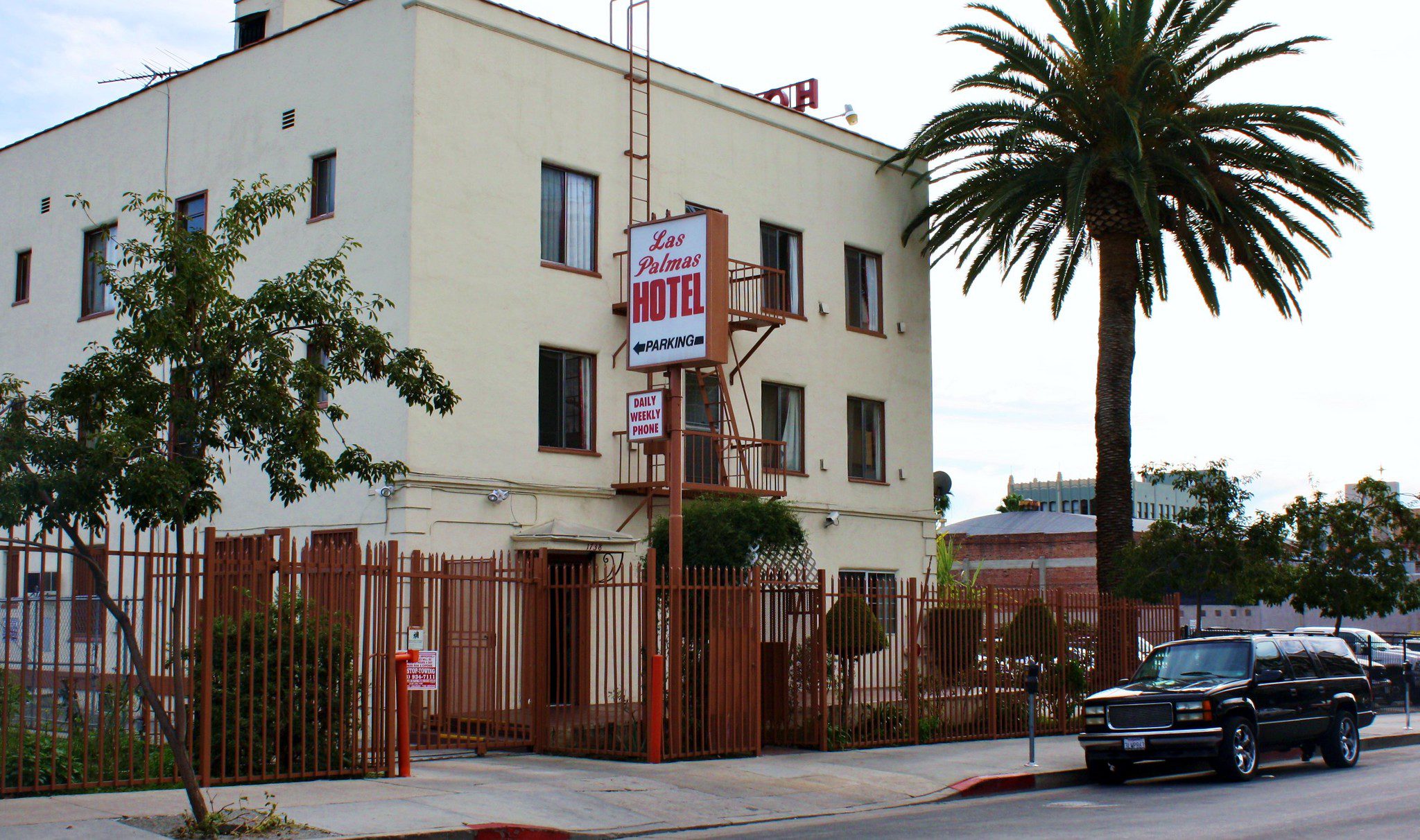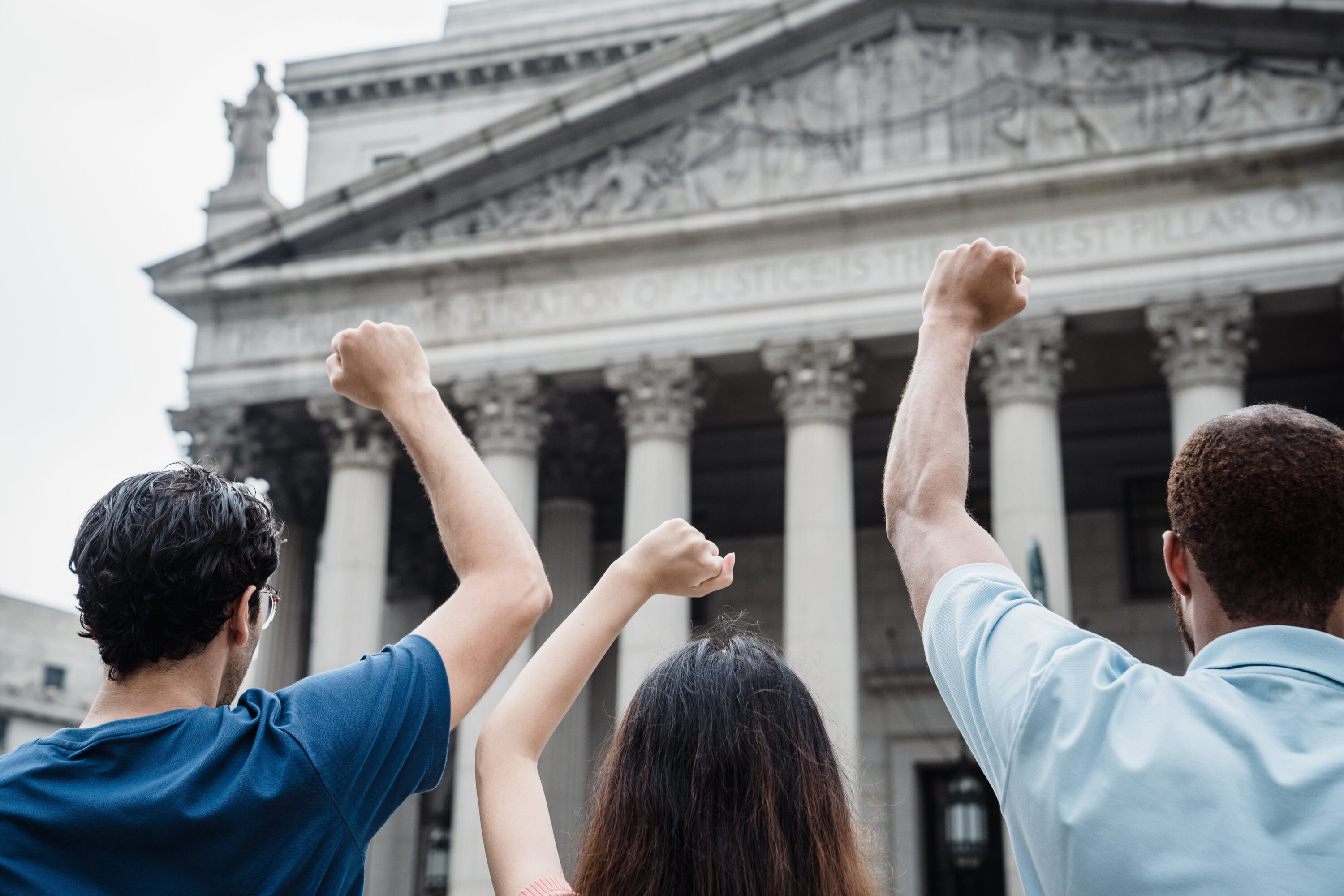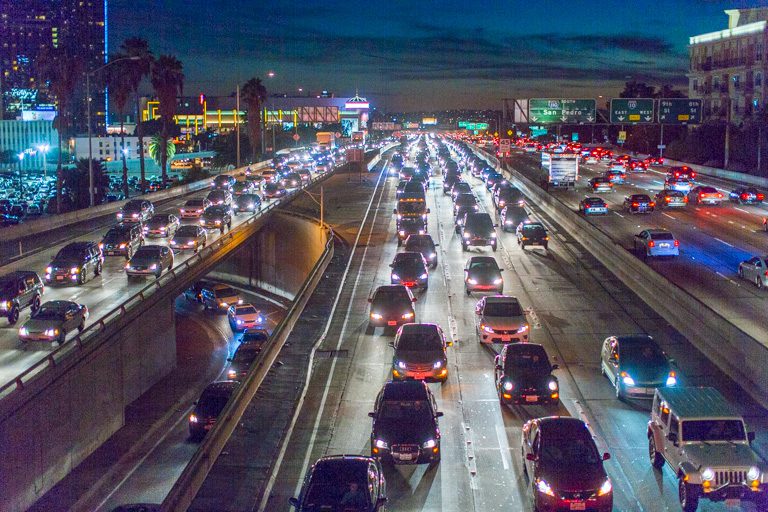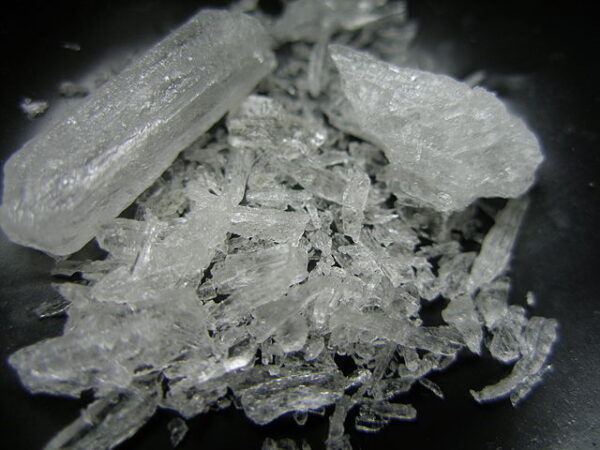The fire-damaged section of the Santa Monica (10) Freeway in downtown Los Angeles will reopen in three to five weeks, Gov. Gavin Newsom announced Tuesday, saying additional testing on concrete and rebar showed better-than-anticipated structural integrity of the freeway deck.
“This will not be a demolition, we will not need to demolish and replace the I-10,” Newsom said during a Tuesday morning news conference.
Instead, crews will work around the clock to continue shoring up and repairing the freeway deck and the roughly 100 support columns affected by the fire that erupted early Saturday morning and forced the closure of a roadway that handles 300,000 vehicles per day.
Newsom said he expects the work to be completed and at least part of the freeway reopened earlier than five weeks.
“I do not want to see that five-week mark hit,” he said. “I want to see something much faster.”
He noted that if the freeway would have needed to be demolished, the closure would have lasted “many, many months,” perhaps as long as six months.
Los Angeles Mayor Karen Bass hailed the announcement, but warned that a three- to five-week freeway closure is still a major ordeal in car-reliant Los Angeles.
“Angelenos, it’s good news,” Bass proclaimed as she stood alongside Newsom. “The freeway will not have to come down, so instead of months, we are talking about weeks. … But it’s still three-to-five weeks in Los Angeles for this freeway not to be in operation.”
Bass urged commuters to continue taking steps to lessen the impact on area streets and freeways, saying people should continue to work from home as much as possible and take advantage of something she said the city didn’t have at its disposal following the 1994 Northridge earthquake that damaged multiple freeways — public transit.
She said if residents follow the advice to telecommute and use public transit, “there’s no reason for this to be the disaster it could be.”
Tuesday marked the second workday commuters were forced to deal with the freeway closure, which was sparked by a pallet fire in a storage yard beneath the roadway — a fire that Newsom and state officials said was deliberately set.
Local transportation officials said the city made it through Monday’s start to the work week in pretty good shape.
“What we saw was both encouraging, but a reminder of the significant challenges we face,” Laura Rubio-Cornejo, general manager of the Los Angeles Department of Transportation, said Tuesday morning.
Rubio-Cornejo said Monday’s commute did not result in gridlocked streets, but downtown surface streets did see a 14.7% increase in traffic volume throughout the day.
To encourage residents to get out of their cars, LADOT officials said Tuesday they’re temporarily eliminating fares on DASH and Commuter Express bus lines.
Officials said congestion was worse in the afternoon than in the morning on Monday, and they’re looking into the trend to see if there’s any action they can take to address that situation. They also mentioned that the rain in the forecast for Wednesday would likely make any traffic problems even worse.
The investigation into the fire was continuing, and there was no immediate information on a possible arson suspect or suspects. Newsom said at a Monday afternoon news conference that the fire was set within the fenceline of the storage business operating below the freeway, which was littered with vehicles, pallets and other materials.
Newsom said Cal Fire investigators who completed their initial probe Sunday night determined “that it was arson, and that it was done and set intentionally. The determination of who was responsible is an investigation that is ongoing.”
He said investigators had some preliminary tips, but he urged anyone with information about the start of the blaze to come forward and call a hotline at 800-468-4408.
No specifics were released about how exactly the fire was ignited.
Bass insisted there was no initial information that would link the fire to homeless people in the area, and she urged the public not to jump to that conclusion. She said there were 16 homeless people living in the immediate vicinity of the fire area, and they have all since been placed in housing.
“There is no reason to assume the origin of this fire … is because there were unhoused individuals nearby,” Bass said.
The freeway remains closed roughly between Alameda Street and Santa Fe Avenue, affecting connectors to the Golden State (5), Hollywood (101) and Pomona (60) freeways.
Officials urged motorists trying to navigate the area to remain on various freeways as much as possible to avoid having local streets overloaded by thousands of vehicles.
Drivers using the 10 Freeway were asked to remain on the freeway and transfer to other freeways when they approach the downtown area if possible. For those coming from the east, the first exit to downtown streets is Seventh Street, with the next opportunity at Santa Fe/Mateo. For those coming from the west, the transition to the Harbor (110) Freeway is the first opportunity to access downtown surface streets, and the next exit is Alameda.
State officials established a website at fixthe10.ca.gov to provide the latest information on the repair process.
Newsom declared a local state of emergency that directs Caltrans to request assistance through the Federal Highway Administration’s Emergency Relief Program. He said Sunday that no regulations would impede the efforts to reopen the freeway, noting that it holds “significant consequence to the economy and the health and safety of Angelenos.”
On Monday, Newsom again noted that the company that leased the property from Caltrans beneath the freeway in the area has been sued by the state due to alleged violations of the lease terms — most notably by subleasing the property to other companies without permission and failing to pay rent. A hearing in the unlawful detainer (eviction) effort is scheduled for early next year. He identified the company as Calabasas-based Apex Development.
The governor also noted that the state was reviewing all other similar leases in the area to determine how many Apex may hold and if those other leases may also be in default.
At a mid-morning briefing Monday at Caltrans District 7 headquarters, Toks Omishakin, the state’s secretary of transportation, said emergency funding was in place, and two contractors have been working at the site to clean up the area and shore up the structure.
Also at the mid-morning briefing on Monday was Shailen Bhatt, the administrator of the Federal Highway Administration. Bhatt said the president and Secretary of Transportation Pete Buttigieg have been briefed about the situation, and the federal government “will provide whatever funding is needed” to assist in the rebuilding effort.
The initial fire was reported at 12:22 a.m. Saturday in the 1700 block of East 14th Street, two blocks west of Alameda Street, according to the Los Angeles Fire Department’s Margaret Stewart.
Firefighters from 26 companies worked feverishly to contain and extinguish the major emergency fire, which started in one downtown pallet yard, spread to another and consumed a fire engine that became stuck in its path, Stewart said.
The first pallet yard was 40,000 square feet in size and fully involved with flames that engulfed multiple trailers when firefighters arrived. The flames spread to the second pallet yard of similar size between Lawrence and Elwood streets.
Stewart said that by 2:33 a.m. Saturday, pallets in both yards were mostly consumed by the flames and firefighters were using bulldozers to move debris and put out hot spots.
Firefighters successfully prevented the fire from spreading to three nearby commercial buildings, Stewart said.
Bass outlined what she called “a three-pronged approach” to handling the problem.
“Number one, ensuring that we are coordinating a comprehensive plan from the city’s traffic center and our emergency operations center to address the traffic impacts of this closure with our local, state and federal partners,” Bass said.
The second part of the plan is “getting the 10 Freeway up and running as fast as possible, and bringing accountability to that effort,” the mayor said.
“And finally, providing updated and detailed information to ensure that our communities and commuters are well informed every step of the way,” Bass said.
Bass said officials have been reaching out to the community via the “wireless emergency alert” system, as well as announcements on Nextdoor and Instagram Live.
Metrolink expanded service beginning Monday on its San Bernardino Line to support travelers impacted by the Interstate 10 closure. On Tuesday, the schedule expanded again, with trains departing Union Station bound for Covina at 5:50, 8:08 and 10:38 a.m. and 1:38 p.m. Trains will depart Covina for Union Station at 7:08, 9:11 and 11:44 a.m. and 3:11 p.m.
An additional train will offer round-trip service between Union Station and Rancho Cucamonga, leaving L.A. Union Station at 4:22 p.m., then leaving Rancho Cucamonga heading back to L.A. at 6:46 p.m.
Los Angeles Unified School District Superintendent Alberto Carvalho said all of the district’s schools and offices remained open. He noted all school buses were continuing to operate, with about 40 of the routes needing to be adjusted, but he said delays during the morning commute were only about 15 minutes. Families looking for information about district transportation were urged to contact 1-800-LA-BUSES (522-8737).

